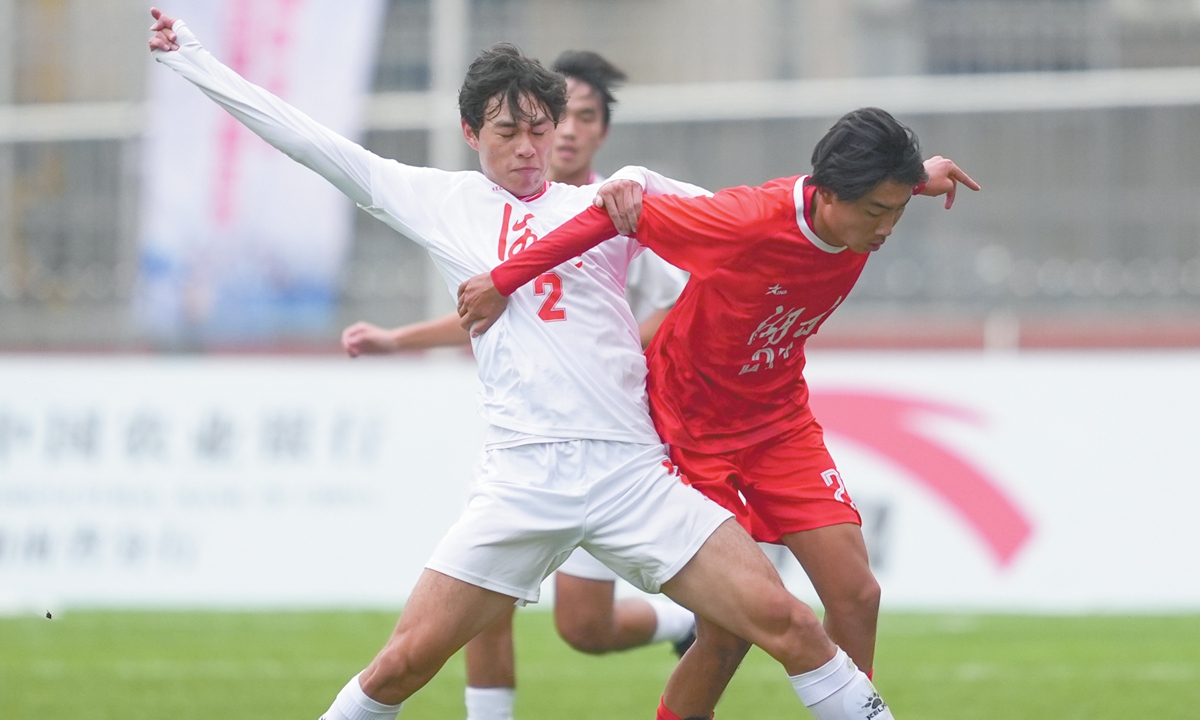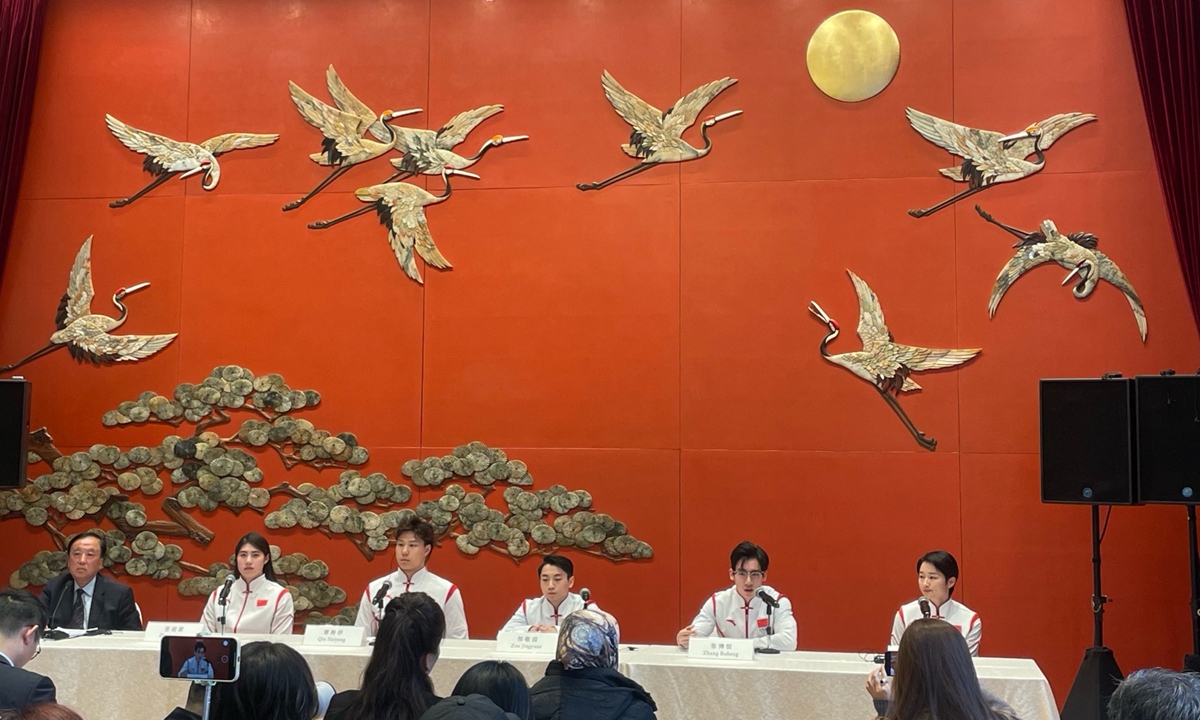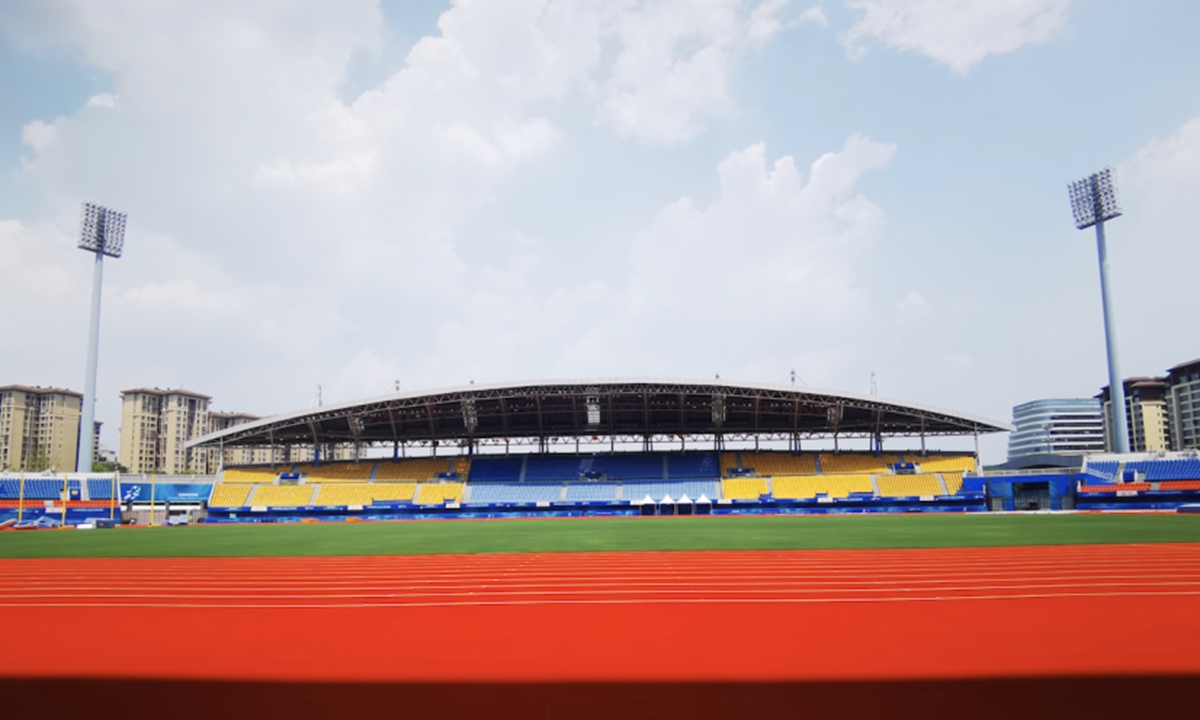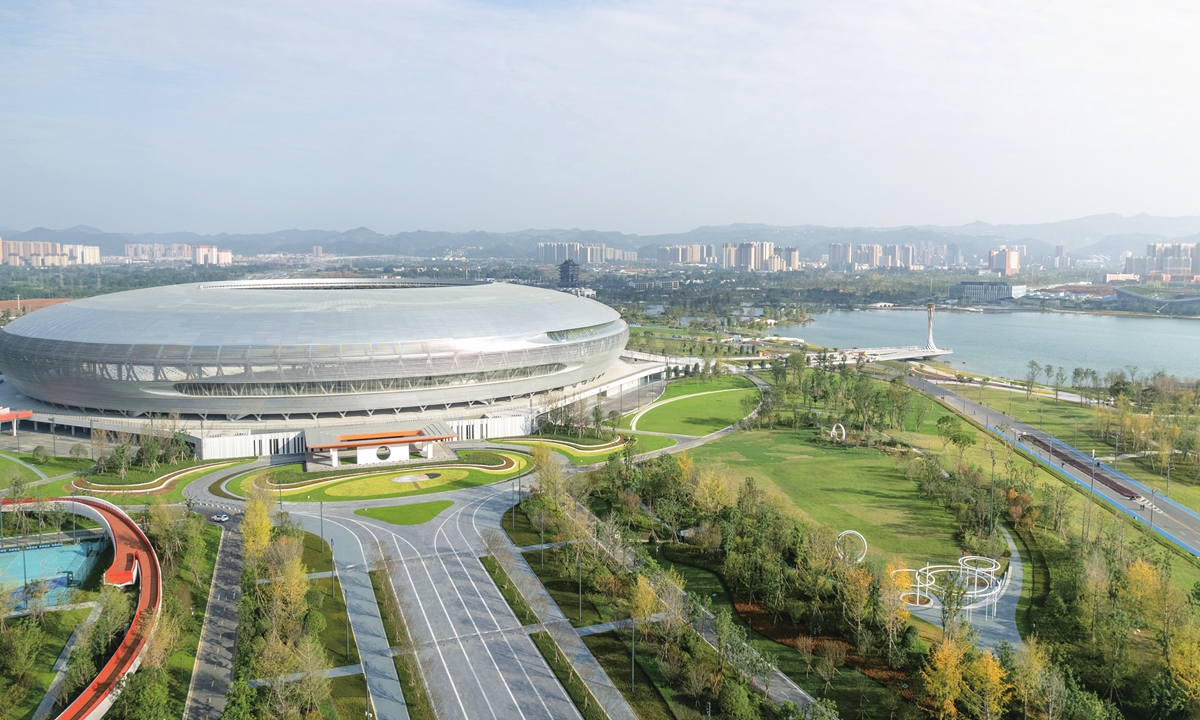
Two football players at the First National Youth Games for Football, Basketball, and Volleyball of China
The national sports arbitration center was officially inaugurated in Beijing on Tuesday, marking a significant step forward in China's effort to strengthen the legal framework for resolving sports disputes.
The new center, under the General Administration of Sport (GAS), will handle the routine operations of the national sports arbitration commission, which was established in February 2023.
The center's launch aligns with the implementation of the revised Sports Law in 2022 and is part of broader measures by GAS to promote rule-based, standardized and professional mechanisms for resolving sports disputes.
Speaking at the inauguration ceremony, Li Jing, a deputy director of GAS, said that the establishment of the center represents a landmark achievement in China's sports governance.
"The sports arbitration system is an essential legal provision introduced in the revised Sports Law," Li was quoted as saying by the Xinhua News Agency.
"Its implementation ensures order in sports development and strengthens the rule of law in the sector," Li said.
The national sports arbitration commission has handled nearly 100 cases since its inception.
These cases involve a range of sports such as football, ice hockey, field hockey, taekwondo, marathons and chess, with disputes including issues in athlete registration and transfers, youth training compensation, disciplinary actions, competition eligibility and results.
Experts note that the center's presence will help standardize the sports market, which is critical for promoting sustainable growth and maintaining order in the industry.
"As China's sports market expands, the complexity of disputes has also increased," Zhang Bin, a Beijing-based sports commentator, told the Global Times on Wednesday.
"The establishment of the arbitration center meets this demand by providing a professional, efficient and impartial platform for resolving conflicts," Zhang said.
The arbitration center is expected to bring significant improvements to sports governance in China, particularly in safeguarding the rights and interests of athletes, said Mao Jiale, a Chengdu-based sports commentator.
"By addressing disputes, including issues related to athlete registration and youth training compensation, the center could provide athletes with a reliable mechanism to ensure their concerns are resolved fairly and efficiently," Mao told the Global Times.
The domestic football market has become a hotbed for disputes due to clubs' mismanagement and financial issues, Mao noted.
In addition to protecting individual rights, the center aims to promote fairness in competitions, he added.
"A transparent and impartial arbitration process will help uphold the integrity of sporting events by ensuring that all participants compete on a level playing field."
While the establishment of the national sports arbitration center is a milestone, some challenges remain, Zhang noted.
"Ensuring the professionalism and impartiality of arbitrators, improving arbitration efficiency and fostering collaboration with other sports institutions are critical issues that need to be addressed," Zhang told the Global Times.
"International cooperation, particularly in cross-border sports disputes, may also become a focus for the center as Chinese athletes and sports organizations increasingly participate in global sports competitions," Zhang said.



